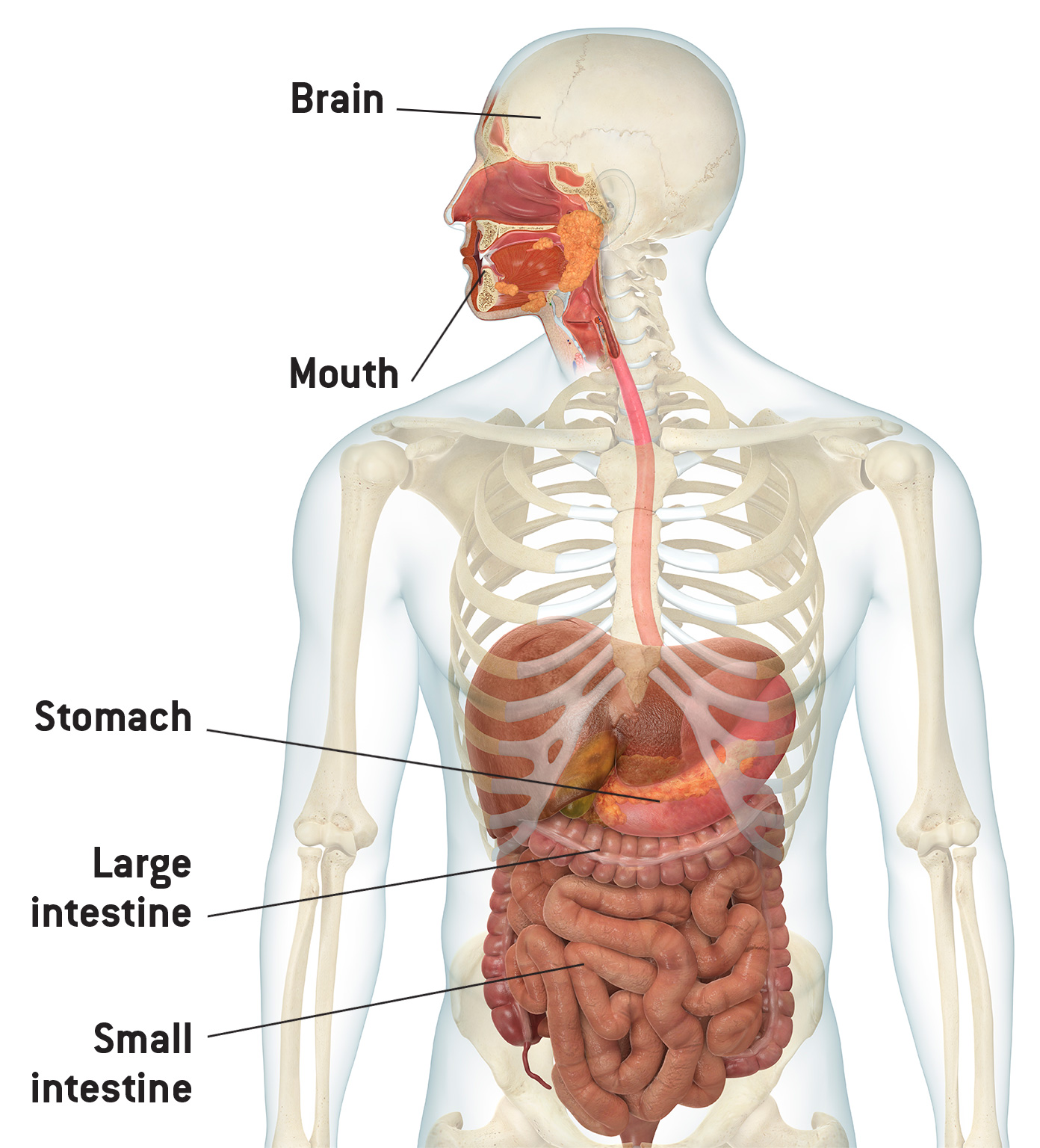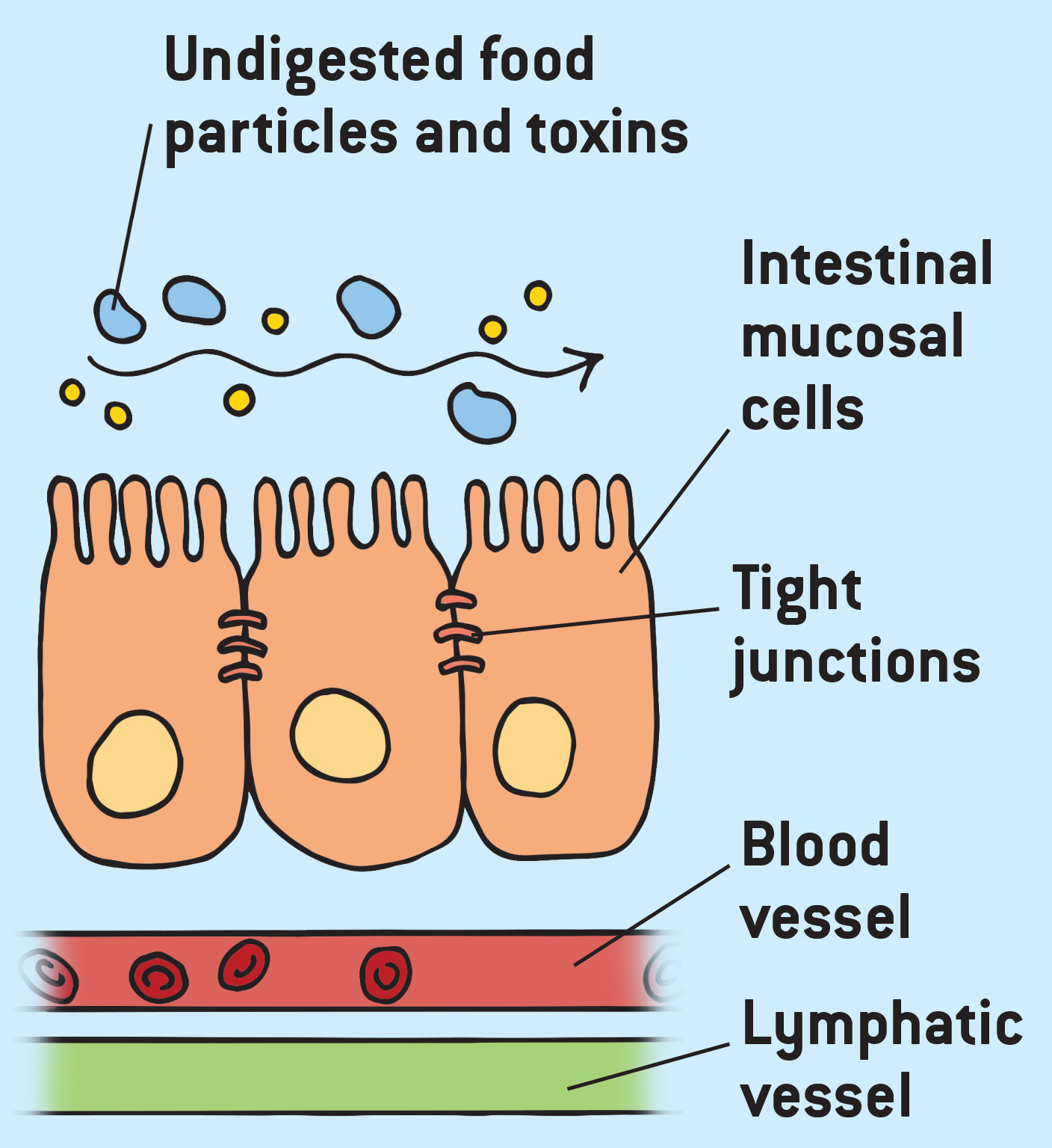When Digestion Goes Wrong
Leaky gut syndrome occurs when the lining of the small intestine becomes too permeable, causing a cascade of immune responses that can lead to chronic health problems. This permeability can be due to inflammatory foods such as gluten, dairy, sugar, and alcohol; some medications; intestinal parasites; and even stress.
1 Brain
- • NORMAL FUNCTION Digestion actually begins in the brain, when you see, smell, or sometimes even think of food. Your mouth begins to water, and your body begins to prepare the various digestive organs to receive and process food.
- • WHAT CAN GO WRONG This step of digestion can go wrong when you’re eating under stress—in the car, during a meeting, or while doing chores—which puts your body in fight-or-flight rather than rest-and-digest mode and hampers the digestive process from the very beginning.
2 Mouth
- • NORMAL FUNCTION In the mouth, food is broken down mechanically by chewing and chemically by enzymes present in saliva.
- • WHAT CAN GO WRONG If you gulp down your food instead of chewing it properly, you force your stomach to do more work. That stresses your digestive system and can result in food being improperly digested.
3 Stomach
- • NORMAL FUNCTION Your stomach breaks down food mechanically by contracting the muscles of the stomach wall and chemically by using stomach acid and digestive enzymes.
- • WHAT CAN GO WRONG It’s very common for a person to underproduce (rather than overproduce, as commonly believed) stomach acid, which can lead to problems like heartburn and acid reflux and contribute to leaky gut and food allergies.
4 Small Intestine
- • NORMAL FUNCTION The small intestine is where most of the digestion of nutrients takes place. The lining of the small intestine is designed to be permeable so properly digested food can be absorbed into the bloodstream and lymphatic system and circulated around the body.
- • WHAT CAN GO WRONG Leaky gut occurs when the lining becomes too permeable, allowing undigested food particles, toxins, and microbes into the bloodstream, where the body attacks them as foreign invaders.
5 Large Intestine
- • NORMAL FUNCTION A small amount of nutrient absorption occurs in the large intestine. In addition, the large intestine reabsorbs water from the food, and beneficial bacteria in the large intestine convert waste into nutrients before the food is expelled as feces.
- • WHAT CAN GO WRONG If you’re dehydrated, your large intestine will hold feces as your body tries to reabsorb as much water as possible, causing constipation. If there’s not enough beneficial bacteria in the colon, opportunistic bacteria can overwhelm the environment, causing gut dysbiosis.

Leaky Gut Syndrome
Leaky gut is believed to cause many physical and physiological issues. Stress, diet, inflammation, candida, and zinc deficiencies are all considered possible causes.
Healthy Gut

Healthy gut Junctions between mucosal cells lining the small intestine are tight and do not allow toxins to reach the bloodstream.
LEaky Gut

Leaky gut It is believed junctions become too permeable, allowing toxins to escape into the blood, causing a cascade of symptoms.
